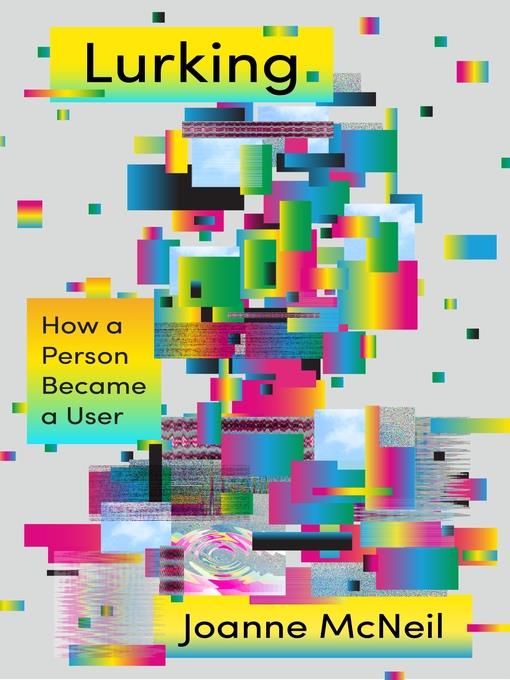
Lurking
How a Person Became a User
کتاب های مرتبط
- اطلاعات
- نقد و بررسی
- دیدگاه کاربران
نقد و بررسی

November 15, 2019
When the product is free, you are the product. Writer and art critic McNeil acknowledges that the term "users" is problematic, if only because consumers of social media are the ones being used, "as scrap metal, as data in a data set, as something less than human, as actual tools." Everything that is priceless, such as friendship and knowledge, carries a price tag; every boundary is transgressed. When we do a Google search, Google is searching us for preferences, interests, worries, and concerns. "It would like to predict what you want to know with the data is has collected from you and about you," she writes. In that milieu, there is a difference between anonymity and privacy--but is one ever truly anonymous given all the tracking and big data crunching and aggregation surrounding us? There may be ways, but to trust the system is to have one's privacy eroded at every step, as when McNeil writes of a friend who, on social media, found her father in the "People You May Know" box, a father whom she hadn't seen for three decades and didn't want to know about. Facebook's assumption, as that friend wrote, is that everybody wants to be connected to everyone else, when of course that's not true: One doesn't want to be confronted by angry exes, stalkers, rapists and other agents of past traumas. Artificial intelligence doesn't know about all that--yet. AI doesn't rule everything--yet. As the author writes, the editors of Wikipedia represent a very human phenomenon, interpolating technology with their own prejudices as (mostly) white males who are vocal about biases and tend to shout down "newbies" who may be of other ethnicities and genders: "There's a learning curve, after all," writes McNeil, "and it is accelerated by the vicious pedantry of the fervid." In our brave new world, everybody wants something, and ferreting out the identity of the former wallflowers who lurk quietly in the corners of discussion rooms is a particularly desired prize. Sharp, broad-ranging techno-criticism that merits attention.
COPYRIGHT(2019) Kirkus Reviews, ALL RIGHTS RESERVED.

December 23, 2019
Art critic McNeil charts internet history in her thoughtful debut, critically examining how online platforms affect their users. Her account is impressively and even dizzyingly far-reaching, to the point that its many tidbits of information sometimes blur together. Those facts are, nevertheless, eye-catching (such as that in 1998, AOL, determined to “onboard the country with ubiquitous setup disks and CDs,” monopolized the world’s entire CD production for several weeks). McNeil explores how an internet driven by profits and the commodification of sharing transformed a potentially beneficial, community-building activity into a potentially demoralizing, community-breaking habit. She writes dismissively—though also probingly—about the far-right in her section on online outrage. Dissecting a neo-Nazi tweet disavowing any connection between online hate speech and real-life hate crimes, she observes that fascism is, “among its
dangers and evils, also profoundly corny.” Later, discussing the tyranny of big platforms, she notes, “Google and Facebook... have taken over functions of a state without administering the benefits or protections of a state.” However, she promises her audience, there’s still a chance to “hold platforms accountable,” through antitrust action and well-aimed regulation. That hope, and the hope for a truly user-friendly internet, is what will make McNeil’s history resonate with her audience. Agent: Lydia Wills, Lydia Wills LLC.

January 1, 2020
McNeil uses an intriguing approach in this exploration of the culture inadvertently created by internet use. Writing often in the first person and sharing her own history of using the web, she investigates the world of lurking, or listening and witnessing on the internet rather than opining and capturing the attention of others . She writes engagingly of AOL, Friendster, MySpace, blogging, Twitter, Tumblr and more, taking care to dismiss the nostalgic perspective that far too often colors surveys of the internet's first days, instead addressing episodes of misogyny and racism that continue to frustrate users. In a loosely chronological narrative, McNeil shares stories of her online past that are especially valuable in illuminating such early innovations as AOL's free trial CDs. Veering far from the technological focus that often grounds books about digital experiences, McNeil presents an original take on a fascinating and important subject and makes it clear that there is much to consider and explore and an endless array of approaches with which to do so.(Reprinted with permission of Booklist, copyright 2020, American Library Association.)

























دیدگاه کاربران